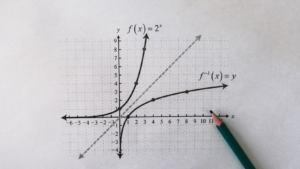Virtual math competitions have revolutionized the way students showcase their problem-solving skills from the comfort of their own homes. With the rise of online platforms and digital tools, participants can now engage in challenging mathematical contests without geographical limitations. These virtual events not only test mathematical abilities but also foster a sense of camaraderie among young mathematicians worldwide.
In a world where technology continues to shape educational landscapes, virtual math competitions offer a dynamic platform for students to excel in critical thinking and analytical reasoning. The convenience of participating remotely has opened doors for aspiring mathematicians to compete, collaborate, and learn in a digital environment. As the popularity of virtual math competitions grows, so does the opportunity for students to sharpen their mathematical prowess and connect with like-minded individuals globally.
Virtual Math Competitions
 Virtual math competitions have revolutionized the way students showcase their problem-solving abilities from the comfort of their homes. These online platforms and digital resources play a pivotal role in enabling students to participate in stimulating mathematical challenges irrespective of their location.
Virtual math competitions have revolutionized the way students showcase their problem-solving abilities from the comfort of their homes. These online platforms and digital resources play a pivotal role in enabling students to participate in stimulating mathematical challenges irrespective of their location.
Beyond evaluating mathematical skills, these virtual events foster a sense of community among budding mathematicians globally. By offering a dynamic digital space, virtual math competitions not only enhance critical thinking and analytical reasoning skills but also facilitate collaboration and learning on a worldwide scale. The increasing popularity of these competitions signifies a growing trend towards embracing digital platforms for educational growth.
Virtual math competitions offer several advantages for participants, making them a valuable experience for students worldwide.
Increased Accessibility
 Virtual math competitions break down geographical barriers, allowing students from different parts of the world to participate without the constraints of travel. This accessibility opens up opportunities for a more diverse pool of contestants, enhancing competition levels and creating a broader platform for showcasing mathematical talent.
Virtual math competitions break down geographical barriers, allowing students from different parts of the world to participate without the constraints of travel. This accessibility opens up opportunities for a more diverse pool of contestants, enhancing competition levels and creating a broader platform for showcasing mathematical talent.
One key benefit of virtual math competitions is the flexibility they offer in timing. Participants can engage in these events from the comfort of their homes, enabling them to choose convenient time slots that align with their schedules. This flexibility allows more students to participate, regardless of their location or timezone, fostering inclusivity and promoting equal opportunities for all aspiring mathematicians.
Challenges Faced
Virtual math competitions present unique challenges for participants compared to traditional in-person events.
- Limited Interaction: While online platforms allow for global participation, they may lack the face-to-face interaction present in physical competitions. This can hinder real-time exchanges of ideas and camaraderie among contestants.
- Technical Issues: Participants may encounter technical difficulties such as internet connectivity issues, platform glitches, or submission errors, impacting their performance and overall experience during the competition.
- Proctoring Concerns: Ensuring a fair competition environment in virtual settings can be challenging. Proctoring methods like screen monitoring or camera surveillance may raise privacy concerns for participants.
- Time Zone Variations: With participants joining from around the world, coordinating competition schedules based on different time zones can be complex, leading to potential scheduling conflicts and uneven playing fields.
- Cheating Prevention: Maintaining the integrity of virtual math competitions by preventing cheating through online resources or unauthorized aids requires robust monitoring mechanisms, posing a significant challenge for organizers.
- Communication Barriers: Language barriers and varying communication styles among participants from diverse backgrounds may impede effective collaboration or understanding during team-based competitions.
- Distractions and Environment: Participants competing from home face distractions that are absent in traditional competition settings, affecting their focus and concentration levels during the event.
Navigating these challenges is essential for organizers to ensure the smooth conduct of virtual math competitions and provide a fair and engaging experience for all participants.
 Virtual math competitions have revolutionized the landscape of problem-solving engagements, fostering a global community of critical thinkers through accessible online platforms.
Virtual math competitions have revolutionized the landscape of problem-solving engagements, fostering a global community of critical thinkers through accessible online platforms.
Despite facing hurdles like limited interaction and technical glitches, participants can enhance their performance by adhering to key strategies. By creating a conducive workspace, managing time efficiently, leveraging online tools, and maintaining open communication with organizers, competitors can navigate through challenges seamlessly.
Collaboration with peers, strict adherence to rules, and staying updated on competition details are crucial for a rewarding experience in virtual math competitions. Embracing these practices will not only optimize performance but also contribute to a fair and stimulating competitive environment.



